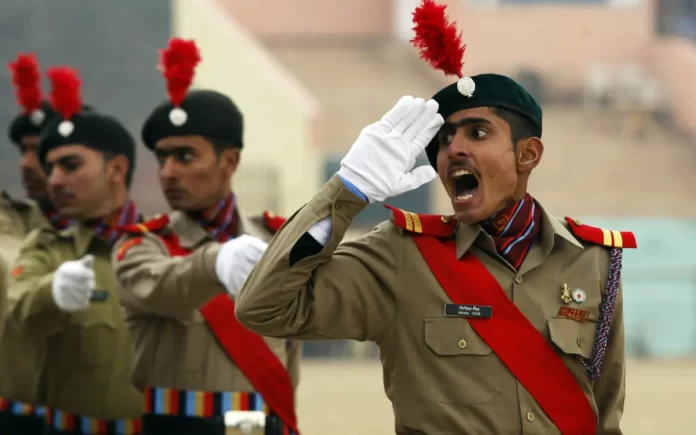New Delhi: In a significant move aimed at meeting the surging demand for the National Cadet Corps (NCC) by educational institutions, Defence Minister Rajnath Singh has given the nod to fill three lakh vacancies. This expansion will catapult the NCC’s strength to a whopping 20 lakh cadets, solidifying its position as the largest uniformed youth organization globally.
As per media reports, the decision to expand the NCC comes with the objective of ensuring a more equitable distribution of vacancies across all states and union territories. As part of the plan, two new NCC units will be established, accompanied by the setup of four additional group headquarters.
Read More: India | Centre Takes Bold Action to Safeguard Dogs from Illegal Fighting: PETA India Applauds
Beyond providing a pathway for employment to ex-servicemen as NCC instructors, this expansion is poised to enhance the quality of training imparted to the cadets, leveraging the skills and experience of these veterans. Moreover, the approval aims to alleviate the backlog of institutions awaiting inclusion in the NCC program, fostering an environment where youth willingly contribute to nation-building efforts. This initiative is dedicated to nurturing the next generation of leaders, instilling in them the values of discipline, leadership, and service.
Read More: India Grants RBI Exemption from Gold Import Levies
The incorporation of NCC as an elective subject in the New Education Policy 2020 underscores its growing significance in shaping the aspirations of the youth toward assuming pivotal roles as future leaders of the nation. By augmenting the number of vacancies, the government is taking proactive steps to accommodate the aspirations of young Indians. By expanding the reach of NCC cadets, more youth will have access to its training and curriculum, enabling them to embody the spirit of patriotism and contribute meaningfully to the nation’s progress. This endeavor aligns with the vision of building a developed India.
Established in 1948 with a modest cadre of just 20,000 cadets, the NCC was envisioned to provide foundational tri-military training to the nation’s youth. Since then, it has evolved into a voluntary program open to students from schools and colleges across the country, serving as a beacon of leadership and discipline.



